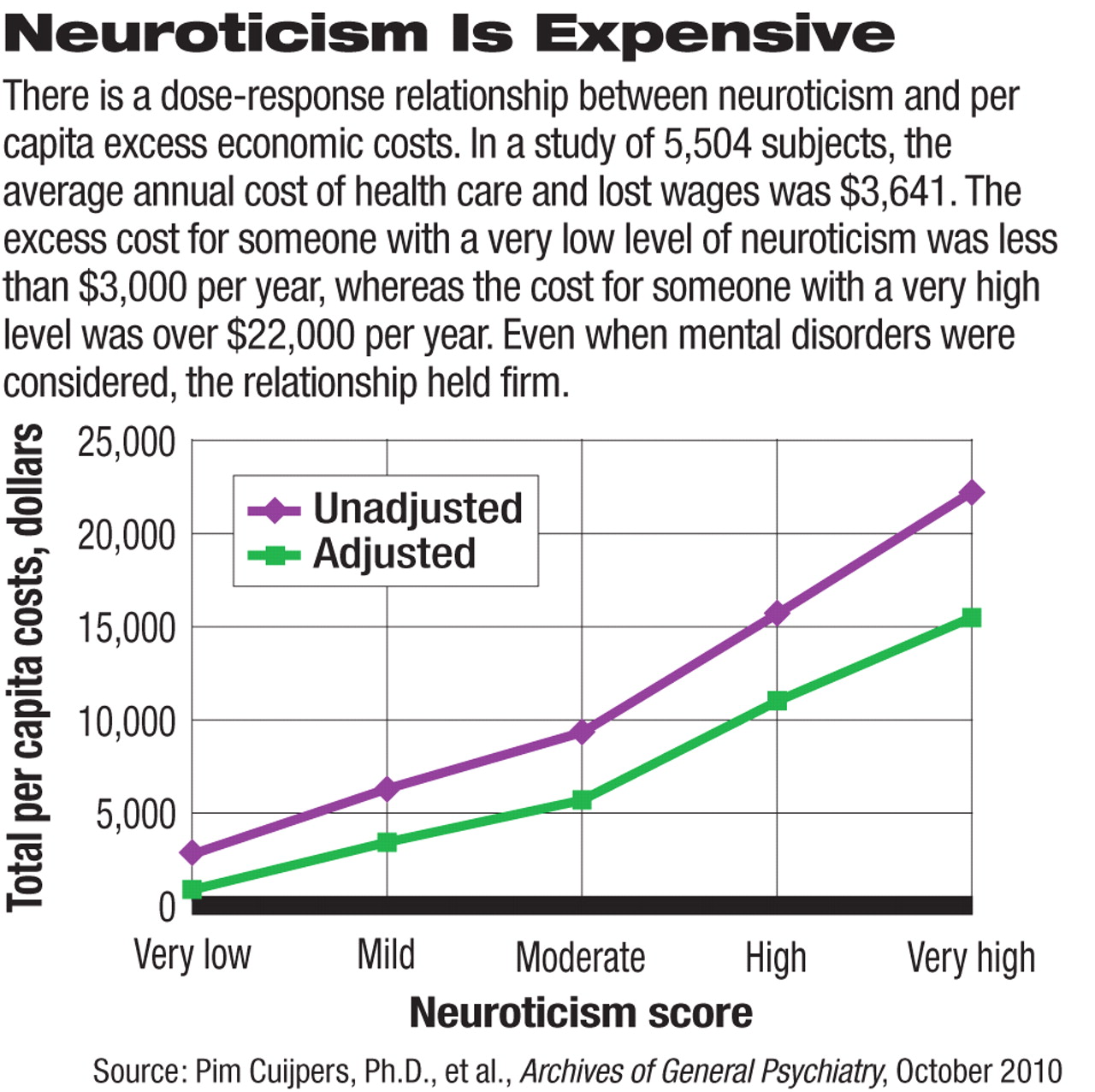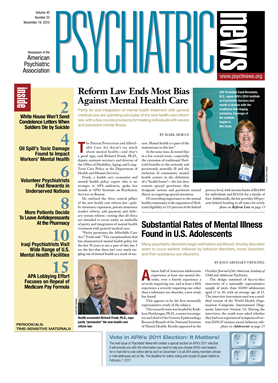The personality trait of neuroticism, which is essentially the tendency to respond negatively to threat, frustration, or loss, has received a formidably negative press in the scientific literature.
For example, people with neuroticism have been found to be vulnerable to anxiety disorders, depression, eating disorders, and personality disorders. Neuroticism also has been implicated in physical illnesses such as asthma, irritable bowel syndrome, and cardiovascular disease.
Now Dutch scientists have found that neuroticism costs society a stunning amount economically, not just in health care service use, but in lost wages. They reported their study's results in the October Archives of General Psychiatry.
Their study was based on the Netherlands Mental Health Survey and Incidence Study, which included a relatively large, representative community sample in the Netherlands—5,504 people. The neuroticism scale of a widely used personality questionnaire in the Netherlands, the Amsterdam Biographic Inventory, was used to assess each individual for the personality trait of neuroticism.
The scale contains questions such as “Do you often feel lonely?” “Are you sometimes worried without knowing why?” “Do you suffer from nightmares?” “Are you often dissatisfied and grumbling?” “Do you take disappointments so seriously that you cannot get them out of your mind?” and “Do you have the feeling that you are eventually alone in the world?”
The researchers divided subjects based on how they had scored on the neuroticism scale; the higher the score, the greater the degree of neuroticism. Out of the 5,504 individuals, 1,376 scored within the upper 25 percent of the scale, 550 scored within the upper 10 percent, and 275 scored within the upper 5 percent.
The researchers determined the 2007 costs incurred by the people surveyed for general health care service use and lost wages due to illness. Health care service use included visits to psychiatrists, general practitioners, psychologists, social workers, and physiotherapists, as well as days of hospitalization and prescription drugs used. The average cost for all subjects was $3,641. But subjects who scored high on the neuroticism scale cost considerably more than the average. The excess cost above the $3,641 average for the 25 percent group was $5,572, the excess cost for the 10 percent group was $8,243, and the excess costs for the 5 percent group was $12,362.
Finally, the researchers determined what these excess costs would mean if they were applied to the population in general, that is, to 1 million inhabitants in the same proportions. The 25 percent highest neuroticism scorers would cost an excess of $1.4 billion.
This amount is “enormous,” they commented. “Although the costs in this study are calculated for the Netherlands, it does seem probable that neuroticism also plays a highly important role in the costs of health care systems in other Western countries.”
Pim Cuijpers, Ph.D., the lead investigator and a professor of clinical psychology at VU University Amsterdam, told Psychiatric News, “We had not expected that the costs of neuroticism would be so high.”
The question now is whether those high costs can be reduced, the researchers wrote. For instance, is there some way to help people become less neurotic even though neuroticism is moderately heritable and a relatively stable personality trait? “Randomized trials should be conducted ... to evaluate the malleability of neuroticism,” they proposed. There are indications that personality can change to a certain extent during the life course and some indications that the SSRI antidepressants can reduce neuroticism in depressed persons (Psychiatric News, January 15).
The study was funded by the Netherlands Ministry of Health, Welfare, and Sport.

